General Secretary To Lam and other Party and State leaders visited the space introducing digital transformation applications in Party agencies_Source: nhandan.vn
The urgency and role of digital transformation in streamlining and streamlining the current political system
Streamlining the apparatus is the process of cutting down ineffective intermediate levels, thereby creating a streamlined state apparatus that operates effectively and efficiently. Currently, the revolution of streamlining the apparatus in the spirit of Resolution No. 18-NQ/TW is taking place synchronously and drastically in agencies, organizations and units of the entire political system. Specifically: The Government has streamlined from 30 focal points to 22 focal points (reducing 5 ministries, ministerial-level agencies and 3 agencies under the Government) (1) ; not maintaining the model of general departments and equivalent organizations under ministries; reducing 519 departments, 219 departments, 3,303 branches and equivalents.
The reorganization and streamlining of the apparatus in the spirit of Resolution No. 18-NQ/TW not only reduces the number of agencies, ministries, branches and localities but also requires comprehensive changes in the way of operating and managing the administration. Reducing the number of intermediate agencies and units, or merging ministries, branches and localities, creates a more streamlined administrative apparatus, but also poses significant challenges in maintaining work efficiency and ensuring transparency and accuracy in management (2) .
To ensure the innovation of the political system's apparatus organization in the direction of "streamlining - compactness - strength - efficiency - effectiveness", meeting the requirements of the new era, the era of national development, the important breakthrough solution is digital transformation. It is necessary to "strongly apply information technology and digital transformation in operational activities to reform the apparatus organization of agencies, units and organizations in the political system, pioneering the Party agencies" (3) . The important solution in arranging and streamlining the apparatus of the political system is to focus on transforming internal processes as well as the relationships between levels, agencies and organizations in the apparatus on the basis of applying digital technology. Digital transformation, application of digital technology, building digital government and digital administration will help fundamentally change the way of management, help agencies and organizations respond quickly to emergency situations, and strengthen the interactive relationship between the government and the people (4) .
From the most general perspective, digital transformation is the process of overall and comprehensive change of individuals and organizations in the way of life, work and production methods based on digital technology (5) . Digital transformation is the next step of information technology development, thanks to the remarkable progress of new breakthrough technologies, especially digital technology (6) . Building e-Government and digital Government is one of the three main components of digital transformation, playing an important role in arranging and streamlining the apparatus in the political system.
Recognizing the trend and importance of digital transformation, with the expectation that the digital revolution will truly create a breakthrough for the country in the coming period, strongly promoting national digital transformation, developing the digital economy and digital society to improve productivity, quality, efficiency and competitiveness of the economy, concepts such as "digital transformation, digital economy, digital society" were first mentioned in the Documents of the 13th National Party Congress (2021). The Resolution of the 13th National Party Congress determined that one of the orientations for national development in the 2021 - 2030 period and the key task during the term is to promote national digital transformation, develop the digital economy on the basis of science and technology and innovation (7) . The Congress also affirmed that, along with the strong development of science, technology and innovation, digital transformation is one of the three pillars for rapid development and sustainable development; At the same time, it is one of the major breakthroughs, contributing to "creating a breakthrough in productivity, quality, efficiency and competitiveness".
Implementing and concretizing the Resolution of the 13th National Party Congress, on December 22, 2024, the Politburo issued Resolution No. 57-NQ/TW on breakthroughs in science, technology, innovation and national digital transformation. Accordingly, the development of science, technology, innovation and national digital transformation is a top priority breakthrough, the main driving force for the rapid development of modern productive forces, perfecting production relations, innovating national governance methods, developing the socio-economy, preventing the risk of falling behind, and making the country develop rapidly, become rich and civilized in the new era. Resolution No. 57-NQ/TW identifies the development of science, technology, innovation and national digital transformation as a profound and comprehensive revolution in all fields; implemented resolutely, persistently, synchronously, consistently and long-term with breakthrough and revolutionary solutions. People and businesses are the center, the main subject, resource, and driving force; scientists are the key factor; the State plays a leading, promoting, and facilitating role for the development of science, technology, innovation, and national digital transformation. One of the key tasks and solutions in Resolution No. 57-NQ/TW is to promote digital transformation, application of science, technology, and innovation in the activities of agencies in the political system; improve the effectiveness of national governance, the effectiveness of state management in all fields, and ensure national defense and security. Establish a Central Steering Committee on the development of science, technology, innovation, and digital transformation, headed by the General Secretary of the Party Central Committee.
Previously, in Resolution No. 52-NQ/TW, dated September 27, 2019, on a number of guidelines and policies to proactively participate in the Fourth Industrial Revolution, the Politburo identified the core content of our country's proactive participation in the Fourth Industrial Revolution as promoting national digital transformation, focusing on developing the digital economy, building smart cities, e-government, and moving towards digital government. The policy to promote digital transformation in agencies of the Party, State, Fatherland Front, and socio-political organizations is clearly stated in Resolution No. 52-NQ/TW, specifically: (i) Pioneering strong digital transformation in agencies of the Party, National Assembly, Government, Fatherland Front, and socio-political organizations to ensure unity, interconnection, and synchronization; (ii) Building a digital database of the Government and all levels of government, creating conditions for all citizens to update necessary information on the operations of the state apparatus. Investing in building infrastructure to collect, manage data and transactions on the internet platform in state agencies; (iii) Focusing on building a team of cadres, civil servants and public employees to meet the requirements of the Fourth Industrial Revolution; standardizing and enhancing the capacity of state management staff at all levels; (iv) Clearly defining functions, tasks and coordination mechanisms between state management agencies in implementing digital transformation. Perfecting administrative processes and procedures suitable for the operations of digital government, minimizing direct transactions.
In the organizational arrangement of the political system, Resolution No. 18-NQ/TW has set out one of the common tasks and solutions for the entire political system as "continuing to strongly reform administration, extensively applying science and technology, especially information technology; promoting the construction of e-government and smart cities; summarizing and evaluating to have solutions to effectively use information technology infrastructure, combating waste, contributing to streamlining the apparatus and reducing staff".
On January 24, 2025, the 13th Party Central Committee issued Conclusion No. 121-KL/TW on summarizing Resolution No. 18-NQ/TW of the 12th Party Central Committee "Some issues on continuing to innovate and reorganize the apparatus of the political system to be streamlined and operate effectively and efficiently". In Conclusion No. 121-KL/TW, the Party Central Committee requested Party committees at all levels, agencies, units, and organizations, especially leaders, to thoroughly grasp the principles, requirements, and direct the good implementation of a number of tasks and solutions to continue building and perfecting the apparatus of the political system, including the following tasks and solutions: Strongly applying information technology and digital transformation in operations to reform the apparatus of agencies, units, and organizations in the political system; taking the lead are Party agencies.
Realizing the importance of digital transformation, on June 3, 2020, the Prime Minister approved Decision No. 749/QD-TTg on the "National Digital Transformation Program to 2025, with a vision to 2030" with the dual goal of developing a digital government, digital economy, digital society, and forming Vietnamese digital technology enterprises with the capacity to go global. Vietnam becomes a digital, stable and prosperous country, pioneering in testing new technologies and models; fundamentally and comprehensively innovating the management and operation of the Government, production and business activities of enterprises, the way people live and work, and developing a safe, humane, and widespread digital environment. With the guiding viewpoint: (1) Perception plays a decisive role in digital transformation. Accordingly, digital transformation is first and foremost a transformation of perception. An agency or organization can immediately carry out digital transformation by using available resources and technical systems to digitize all of its information assets, restructure business processes, organizational structures and convert relationships from the traditional environment to the digital environment; (2) People are at the center of digital transformation. Smart mobile devices are the main means of people in the digital world; (3) Institutions and technology are the driving force of digital transformation. Accordingly, institutions need to be one step ahead when possible.
Thus, digital transformation in state agencies, application of digital technology, building e-Government, and digital Government are considered breakthrough solutions in arranging and streamlining the apparatus in the political system. Promoting the application of digital transformation in management and operation activities is an important solution to reduce administrative workload and cut human resources (8) , solve challenges in administrative management, thereby improving work efficiency, serving people and businesses better, and meeting the development requirements of the country in the new era - the era of national development.
The Party's guidelines, policies, legal regulations on digital transformation in Party and State agencies and some initial results
Party's guidelines and policies : In the process of leadership and implementation, the Communist Party of Vietnam not only sets out guidelines and policies on national digital transformation, but is also vigorously implementing the digital transformation process to better and more effectively implement Party work; use achievements of information technology in disseminating and implementing directives and resolutions of Party committees at all levels; improve the quality of Party cell activities, perfect Party organizations; make studying and following Ho Chi Minh's ideology, morality and style a self-consciousness and regular activity of Party organizations, Party cells and each Party member; the Party's inspection, supervision and discipline work contributes to enhancing the Party's pioneering and fighting spirit in the new context (9) .
The Secretariat (13th tenure) issued Decision No. 27-QD/TW, dated August 10, 2021, on the program of applying information technology in the activities of party agencies for the period 2021 - 2025, emphasizing that digital transformation and reforming the activities of party agencies by digitization is an important and necessary task to modernize and make party work transparent. Then, on November 29, 2024, the Secretariat issued Decision No. 204-QD/TW approving the Digital Transformation Project in party agencies. Accordingly, digital transformation must be associated with administrative reform, innovation in the Party's leadership and governance methods, ensuring unity and comprehensiveness in all areas of party work from the Central to the grassroots level. Sub-section 1, Section II of the Project clearly states the general goals of digital transformation in party agencies as follows:
Digital transformation in the operations of party agencies aims to innovate, create comprehensive, strong, and substantial changes, improve the quality of leadership, direction, and management methods, working style, working manners, and improve efficiency, reduce the time to handle work of cadres, civil servants, and public employees at all levels, making an important contribution to administrative procedure reform in party agencies.
Organize digital infrastructure, comprehensive, synchronous and modern digital platform; strengthen capacity, restructure technical infrastructure and organization, develop information and data systems according to unified architecture, centralized at the Central level, apply digital technology to innovate business processes; strengthen connection, integration, and sharing of information and data, actively and effectively support consulting, service work and leadership, direction and operation work at Party agencies from the Central to grassroots levels.
Connect and share data between party agencies with state agencies, the Vietnam Fatherland Front, and socio-political organizations; perfect the organizational apparatus and resources to implement digital transformation in party agencies to meet task requirements; at the same time, ensure safety, security, confidentiality and information authentication according to the provisions of law; consistent with and similar to the National Digital Transformation Program.
Current legal regulations
In the new period, although modern technology is an important factor, people and institutions are the decisive factors for the success of the process of applying technology to the operation of the administrative system (10) . Resolution No. 57-NQ/TW also determined that, for digital transformation, institutions are the central, core content, a prerequisite, need to be perfected and go one step ahead.
Currently, there are no general legal documents regulating digital transformation in state agencies, e-government, and digital government. There are only specialized legal documents regulating some contents of e-government and digital government, such as: Law on Information Technology 2006 and guiding documents; Law on Electronic Transactions 2023 and guiding documents; Law on Archives 2024 and guiding documents; Decree No. 42-2022/ND-CP dated June 24, 2022 of the Government regulating the provision of information and online public services on electronic information pages or electronic information portals of state agencies; Decree No. 69/2024/ND-CP dated June 25, 2024 of the Government on electronic identification and authentication; Decree No. 64/2007/ND-CP, dated April 10, 2007, of the Government regulating the application of information technology in the activities of state agencies; Regulations on management, operation and exploitation of the National Reporting Information System and the Information Center for Command and Control of the Government and the Prime Minister; standards, regulations, and technical instructions on Digital Government...
Based on the Party's policies and orientations, and the contents of the above legal documents, agencies, organizations, and units in the political system (Government (11) , National Assembly (12) , People's Court (13) , People's Procuracy (14) ) have issued administrative documents detailing digital transformation in their sectors and fields under their authority. In addition to general regulations, provinces and centrally run cities have also issued documents on digital transformation.
Thus, the legal corridor for digital transformation, building and developing e-Government and digital Government has been gradually improved, creating favorable conditions for ministries, branches and localities in implementing digital transformation, promoting the application of information technology in management, administration, work resolution, public service implementation and socio-economic development.
Some initial results
Up to now, most party organizations, fronts, and mass organizations have applied digital technology to their operations and direction. Many conferences and training courses on digital transformation and information technology for leaders, cadres, party members, civil servants, public employees, workers, and cadres working in the party, front, and mass organizations have been organized. From there, it has created a change in awareness in the thinking, working style, and working manner of cadres and civil servants, contributing to innovation in leadership methods, improving the effectiveness of direction and operation, and promoting administrative reform in the Party, front, and mass organizations. Currently, 100% of documents, materials, and reports issued by provincial and central party organizations and agencies are digitally signed, processed, sent, and received in the digital environment. Digital transformation has become a regular activity, ensuring practicality, efficiency, cost and time savings, creating favorable conditions for organizations and individuals to receive, process, research, and look up documents and data; implementing goals, tasks, and solutions to ensure scientific, synchronous, and effective results. Most grassroots party organizations in residential areas, in regions and areas have deployed technology applications and carried out digital transformation (15) .
In administrative agencies, digital transformation has also brought very positive results in many different areas:
Regarding the development of the e-Government platform: According to statistics from the Ministry of Information and Communications, the national data sharing integration platform (NDXP) has established 388 connection points between systems and databases of 95 agencies and units, with about 2.29 million transactions per day. The national population database has connected with 18 specialized databases of ministries and agencies, an increase of 3 points compared to 2023. According to the 2024 E-Government Survey Report (E-Government Development Index - EGDI) of the United Nations, Vietnam is ranked 71st out of 193 countries, up 15 places compared to 2022; for the first time being ranked in the EGDI group at the "Very High" level and achieving the highest ranking since the United Nations began participating in the EGDI assessment in 2003.
Regarding the construction of information systems to innovate the working methods and manners of state agencies: According to statistics from the Government Office, from January 1, 2024 to December 20, 2024, the number of electronic documents sent and received on the National Document Interconnection Axis was over 12.2 million documents, an increase of more than 4 million documents compared to 2023 (in 2023, there were more than 8.2 million documents sent and received on the Axis); a total of more than 46.5 million documents were sent and received on the National Document Interconnection Axis, an increase of more than 18.3 million documents compared to 2023. The information system serving meetings and handling of Government work (e-Cabinet) continues to be effective. Up to now, the system has served 111 conferences and meetings of the Government, an increase of 25 meetings compared to 2023; Processed 2,685 ballots to collect opinions from Government members, an increase of 685 ballots compared to 2023, replaced more than 932 thousand paper files and documents, an increase of 278 thousand files and documents compared to 2023 (16) .
On building and developing information systems to serve people and businesses, and providing online public services in 2024:
The rate of online records of ministries and branches reached 59.57% (30,994,321 online records). online/52,033,997 synchronized records, nearly 2 times higher than in 2023); locality reached 56% (21,730,419 online records/38,881,238 synchronized records, 1.92 times higher than in 2023). Rate of online payment on the National Public Service Portal (2024 target: 45%): at ministries and branches, it reaches 57.26% (1,352,544 payment transactions on the Portal/2,361,913 public service payment transactions) and at localities, it reaches 50.27% (11,379,077 payment transactions on the Portal/22,636,212 public service payment transactions) (17) .
The rate of digitization of records and results of administrative procedure settlement at ministries and branches reached 61.40%. (31,174,607 digitized records/50,775,346 resolved records) and localities achieved 67.46% (26,229,283 digitized records/38,881,238 resolved records). Rate of records with legally valid electronic copies for reuse in ministries and branches reached 63.08% (32,028,690 electronic results/50,775,346 resolved results) and at localities reached 63.08% (24,526,284 electronic results/38,881,238 resolved results); meanwhile, the rate of exploitation and reuse of digital information and data at ministries and branches only reached 1.35% (686,701 electronic results reused/50,866,740 resolved results), at localities reached 21.50% (8,539,110 electronic results reused/39,716,790 resolved results), still low compared to the Government's target (minimum 50%).
Delegates visit digital transformation models at units in the People's Public Security Force at the 3rd National Online Conference on Digital Transformation and the 2-year review of the implementation of Plan No. 377 on digitizing records and documents in the People's Public Security Force_Photo: VNA
Some solutions and recommendations to promote digital transformation in the arrangement and streamlining of the current political system apparatus
Firstly, continue to propagate the Party's guidelines and policies, the State's policies and laws to cadres, civil servants, public employees, people and businesses about the importance and urgency of digital transformation, building e-Government, towards digital Government in the arrangement and streamlining of the current political system apparatus. Create high consensus and unity in the entire political system, especially among leaders and managers to achieve the set goals.
Second, perfecting the institutional system for digital government and modern, effective and efficient national governance. The construction and perfection of digital government in modern national governance, operating effectively and efficiently in Vietnam must be closely linked to the process of building and perfecting the socialist rule of law state. It is necessary to research and propose the development of the Law on e-Government and guiding documents to ensure the legal corridor for the development of e-Government based on open data, applying new technologies towards the digital economy and digital society (18) .
Third, build a unified e-government model, establish a unified e-government model from the central to local levels, with a structure suitable for the apparatus of the political system after the arrangement and streamlining. This model needs to ensure connectivity, unity and synchronization in state management and administration. The information reporting, statistics and data analysis system needs to be designed to suit the new organizational structure after the arrangement and streamlining.
Fourth, perfecting the organization of the advisory and specialized apparatus for digital transformation. Enhance the advisory, consulting and coordinating role of the steering committee for digital transformation at ministries, branches and localities. The specialized unit for information technology and digital transformation of ministries, branches and localities plays the role of the standing body of the steering committee; proactively advises, urges and coordinates relevant agencies and units to implement digital transformation tasks. Ensure the formation of a state management apparatus for digital transformation from the central to local levels, with unified focal points, clear and specific assignments, and clearly defining the tasks of specialized agencies for digital transformation at all levels to improve the effectiveness and efficiency and promote the role of digital transformation in socio-economic development (19) .
Fifth , improving digital skills for science and technology staff is an important factor in the digital transformation process. At the same time, it is necessary to promote the development of synchronous infrastructure, especially focusing on information and telecommunications infrastructure to create a solid foundation for digital transformation, gradually promoting digital government. In addition, the construction and development of digital data, along with promoting digital applications, requires ministries, branches and localities to have specific strategies, in line with the national data strategy. The principle of one-time data collection must be strictly followed, accordingly, data after being collected, managed and shared by state agencies will not be requested to be provided again by people and businesses. The top priority is to develop digital applications in state operations, contributing to accelerating the process of building e-government towards digital government. This not only enhances transparency in state management but also facilitates people in transactions with state agencies and access to public services.
Sixth, review, rearrange and effectively mobilize resources to implement priority tasks in e-government development. At the same time, promote socialization of investment in information infrastructure development, especially under the public-private partnership (PPP) model, to create a breakthrough through research, selection of appropriate models and completion of the PPP investment policy framework in the field of infrastructure in general, as well as information infrastructure serving e-government development in particular./.
---------------------
(1) See: Merge the Ministry of Planning and Investment and the Ministry of Finance into the Ministry of Finance; merge the Ministry of Construction and the Ministry of Transport into the Ministry of Construction; merge the Ministry of Agriculture and Rural Development and the Ministry of Natural Resources and Environment into the Ministry of Agriculture and Environment; merge the Ministry of Information and Communications and the Ministry of Science and Technology into the Ministry of Science and Technology; merge the Ministry of Labor, War Invalids and Social Affairs and the Ministry of Home Affairs into the Ministry of Home Affairs...
(2) See: Ha Le Thanh Trung: "Digital transformation - Solution to ensure effective administrative management activities after streamlining the apparatus", Key scientific workshop " Streamlining the administrative apparatus to meet the requirements of the new era - The era of national growth ", Hanoi Law University, 2025
(3) Professor, Dr. To Lam: Perfecting the overall organizational model of the political system to ensure effective and efficient operations, unlocking and liberating all resources, taking advantage of all opportunities, and maximizing potentials and strengths to develop the country quickly and sustainably", Electronic Communist Magazine , January 24, 2025: https://www.tapchicongsan.org.vn/web/guest/xay-dung-he-thong-chinh-tri-tinh-gon-manh/-/2018/1051602/hoan-thien-mo-hinh-tong-the-to-chuc-bo-may-cua-he-thong-chinh-tri-bao-dam-hoat-dong-hieu-luc%2C-hieu-qua%2C-khoi-thong%2C-giai-phong-moi-nguon-luc%2C-tan-dung-moi-co-hoi%2C-khai-thiac-toi-da-cac-taim-nang%2C-the-manh-de-phat-trien-dat-nuoc-nhanh-va-ben-vung*.aspx
(4) Pham Thi Thanh Tra, "Innovating the organizational apparatus of the political system to be "streamlined - compact - strong - effective - efficient - effective" in the spirit of the orientation of Professor, Doctor, General Secretary To Lam", Communist Magazine , January 2025 issue
(5) Ministry of Information and Communications: Digital Transformation Handbook, Information and Communications Publishing House, Hanoi, 2022
(6) Bui Quang Tuan, Ha Huy Ngoc (Monograph: Digital transformation - International experience and roadmap for Vietnam) , National Political Publishing House Truth, Hanoi, 2023
(7) See: Documents of the 13th National Congress of Delegates, National Political Publishing House Truth, Hanoi, 2021, vol. I
(8) Tran Mai Huong: "The revolution of streamlining the apparatus: goals, challenges and opportunities", Legal page of the Ministry of Justice , December 22, 2024, https://vnlaw.moj.gov.vn/cuoc-cach-mang-tinh-gon-bo-may-muc-tieu-thach-thuc-va-co-hoi-123-i2.htm
(9) Nguyen Thanh Thuy: Digital transformation in party work, Party Building Magazine, October 28, 2024: https://www.xaydungdang.org.vn/nghi-quyet-va-cuoc-song/chuyen-doi-so-trong-cong-tac-dang-21901
(10) Nguyen Ba Chien, Le Hai Binh: Modern and effective national governance - Theoretical and practical basis in Vietnam today, National Political Publishing House Truth, Hanoi, 2024, p. 188
(11) Resolution No. 03/NQ-CP, dated January 9, 2025, of the Government, promulgating the Government's Action Program to implement Resolution No. 57-NQ/TW; Decision No. 749/QD-TTg, dated June 3, 2020, of the Prime Minister, approving the National Digital Transformation Program to 2025, with a vision to 2030; Decision No. 942/QD-TTg, dated June 15, 2021, of the Prime Minister, approving the Strategy for e-Government Development towards Digital Government for the 2021-2025 period, with a vision to 2030
(12) Resolution No. 1294/NQ-UBTVQH15, dated November 15, 2024, of the National Assembly Standing Committee, on the establishment of the National Assembly's Steering Committee for Digital Transformation; Resolution No. 1343/NQ-UBTVQH15, dated December 31, 2024, of the National Assembly Standing Committee, on the building and development of the digital National Assembly for the 2024-2026 period, with a vision to 2030
(13) Resolution No. 33/2021/QH15, dated November 12, 2021, of the National Assembly, on organizing online court sessions; Joint Circular No. 05/2021/TTLT-TANDTC-VKSNDTC-BCA-BQP-BTP, dated December 15, 2021, of the Chief Justice of the Supreme People's Court, the Chief Prosecutor of the Supreme People's Procuracy, the Minister of Public Security, the Minister of National Defense, and the Minister of Justice detailing and guiding the implementation of organizing online court sessions.
(14) Decision No. 359/QD-VKSTC, dated December 2, 2022, of the Chief Justice of the Supreme People's Procuracy, approving the "Plan for information technology development of the People's Procuracy sector to 2025, with a vision to 2030"
(15) Ninh Co: Promoting digital transformation to improve the effectiveness and efficiency of the Party's leadership, Nhan Dan Electronic Newspaper, January 18, 2025, https://nhandan.vn/thuc-day-chuyen-doi-so-de-nang-cao-hieu-luc-hieu-qua-su-lanh-dao-cua-dang-post856605.html
(16) Report No. 8465/BC-BNV dated December 25, 2024 of the Ministry of Home Affairs on the implementation of administrative reform work in 2024
(17) Nguyen Manh Tuyen: "Results of National Digital Transformation in 2024", State Organization Magazine , January 27, 2025
(18) Lai Duc Vuong, Nguyen Thi Su: "Digital Government and solutions to build a digital Government in Vietnam today", State Organization Magazine, July 26, 2024
(19) Do Thi Tam: "Opportunities and challenges in building e-government towards digital government in Vietnam today", State Management Magazine , April 27, 2023
Source: https://tapchicongsan.org.vn/web/guest/nghien-cu/-/2018/1097302/chuyen-doi-so-dap-ung-yeu-cau-sap-xep%2C-tinh-gon-bo-may-trong-he-thong-chinh-tri.aspx


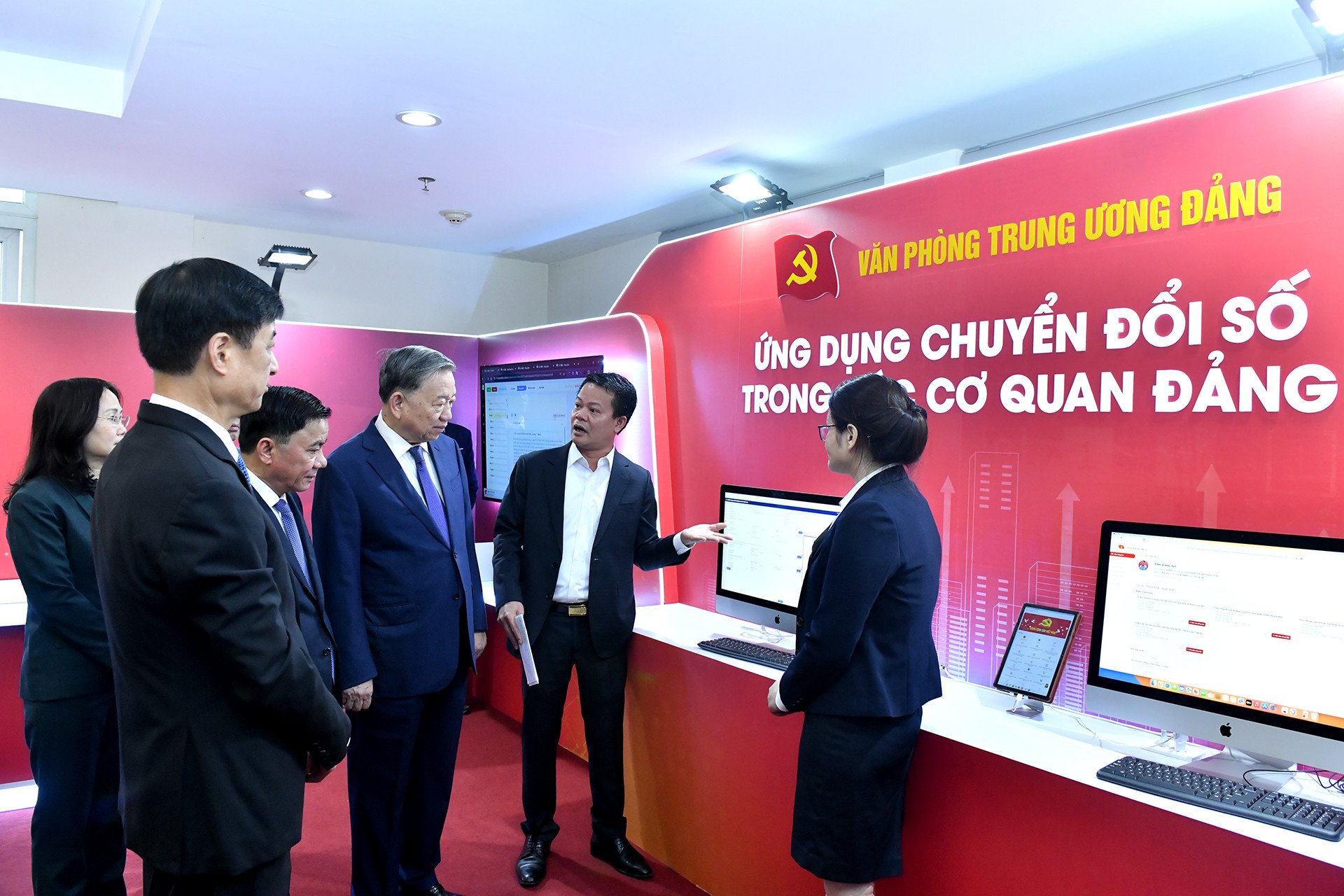
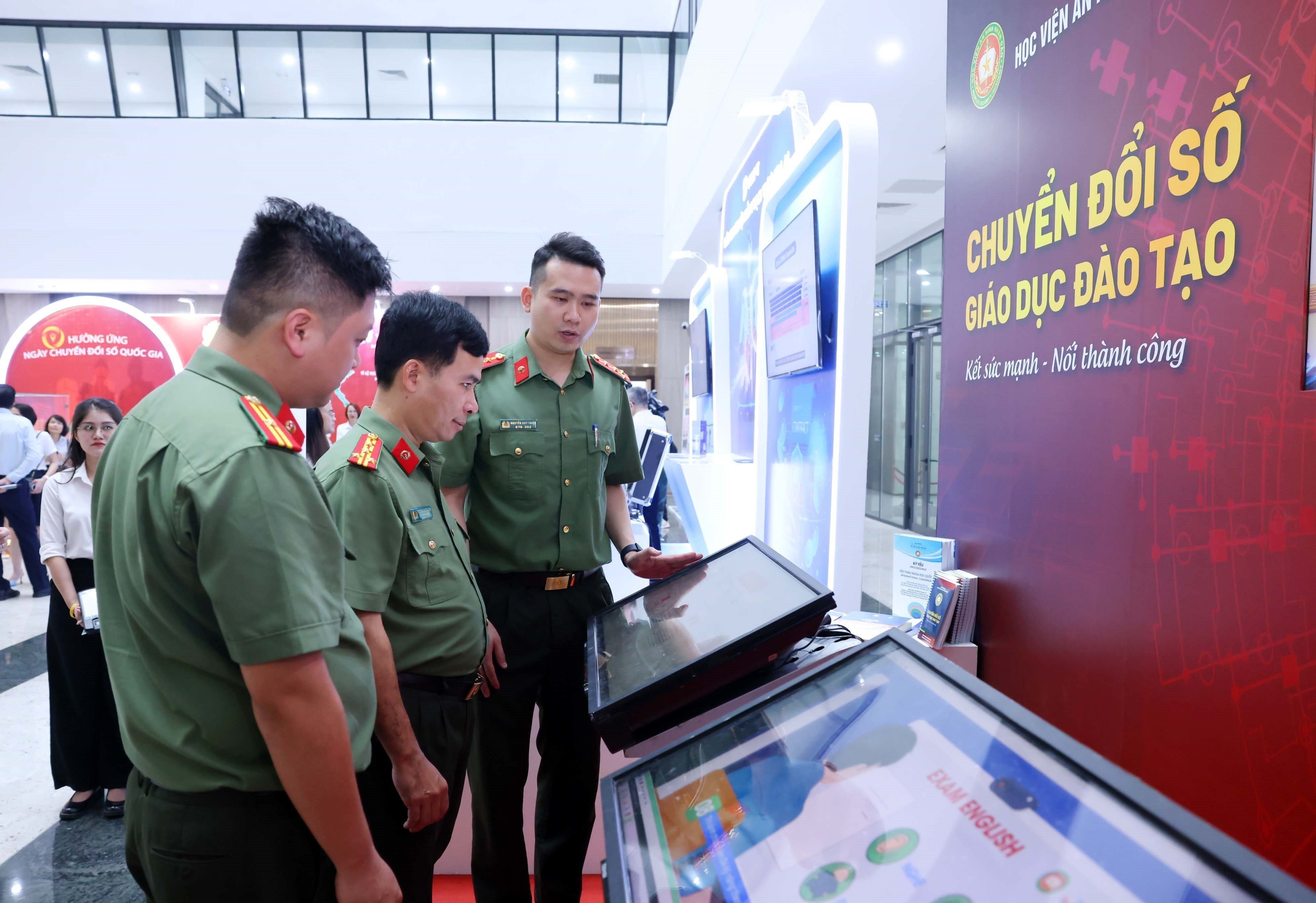






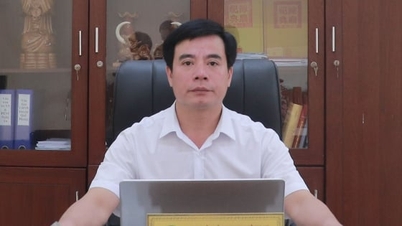

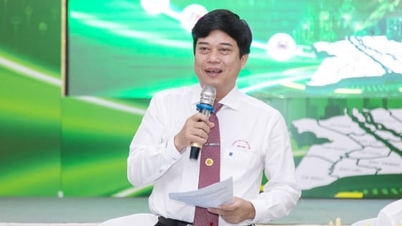







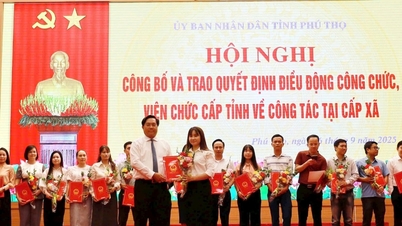





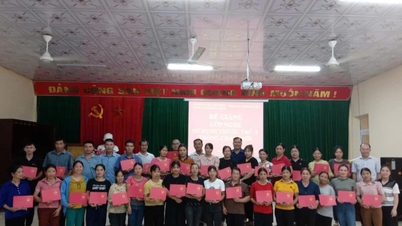
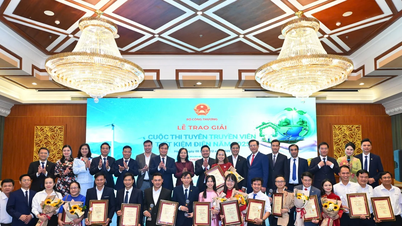










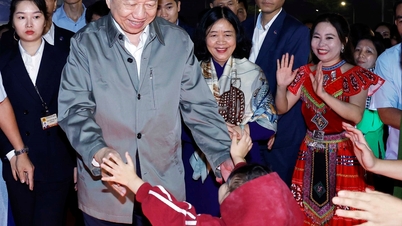




























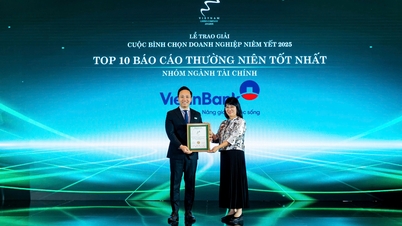














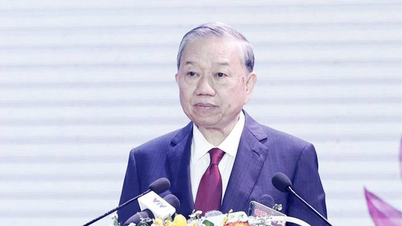





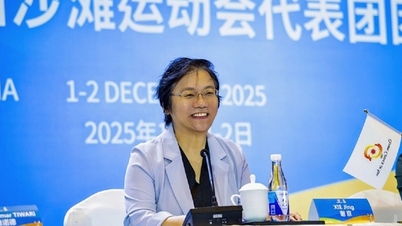


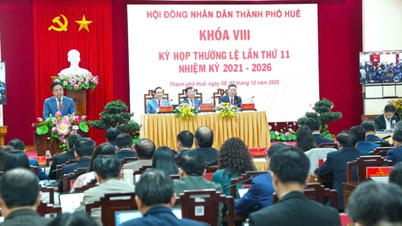
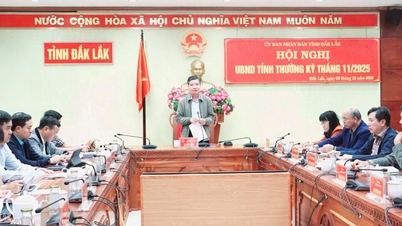

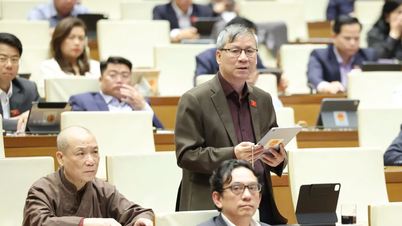
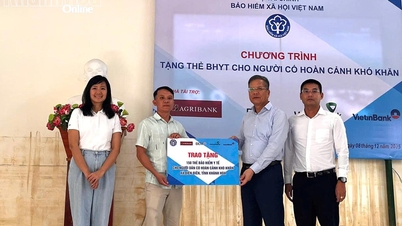

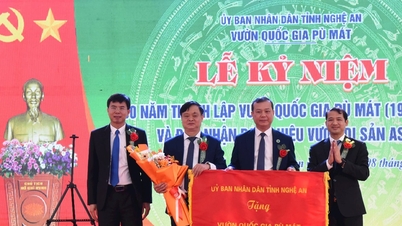

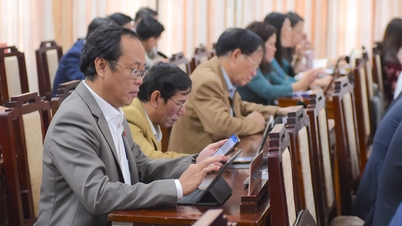












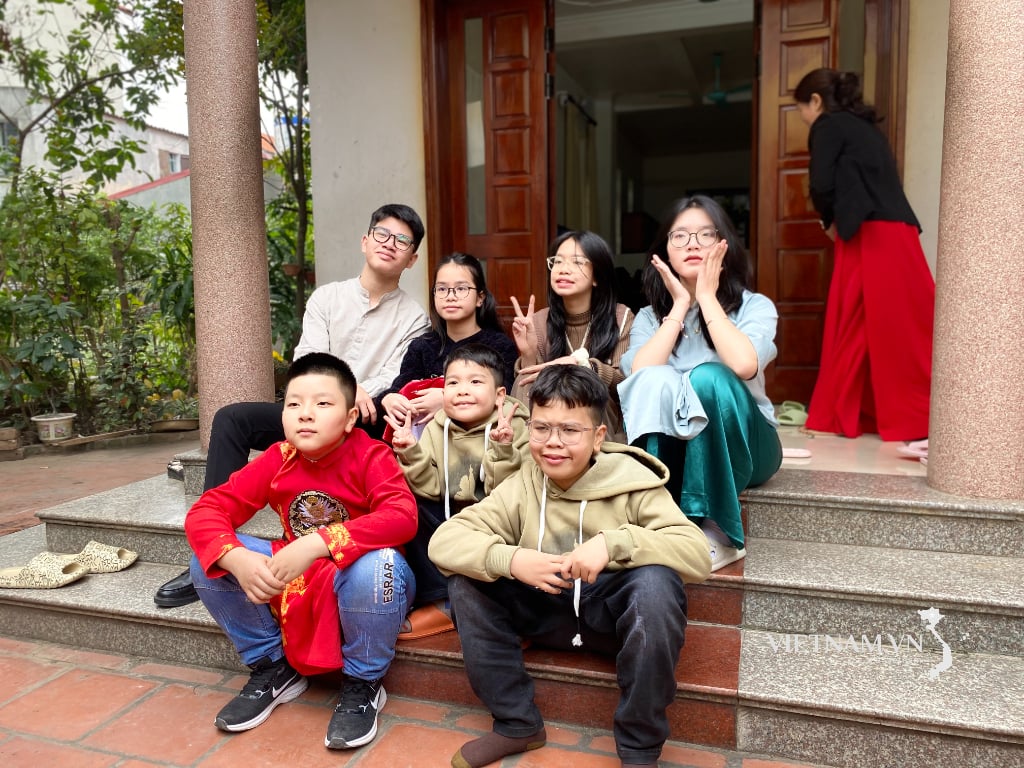






Comment (0)